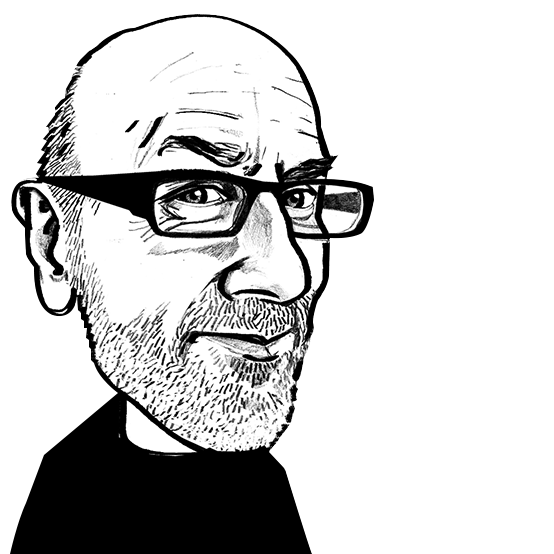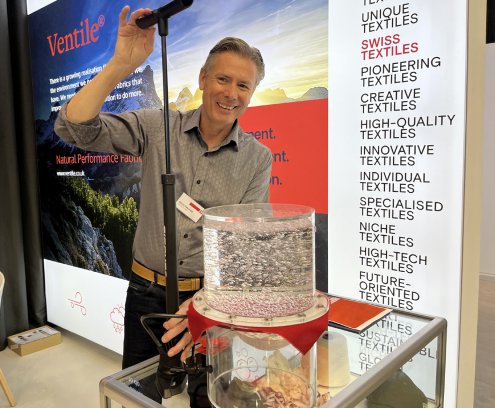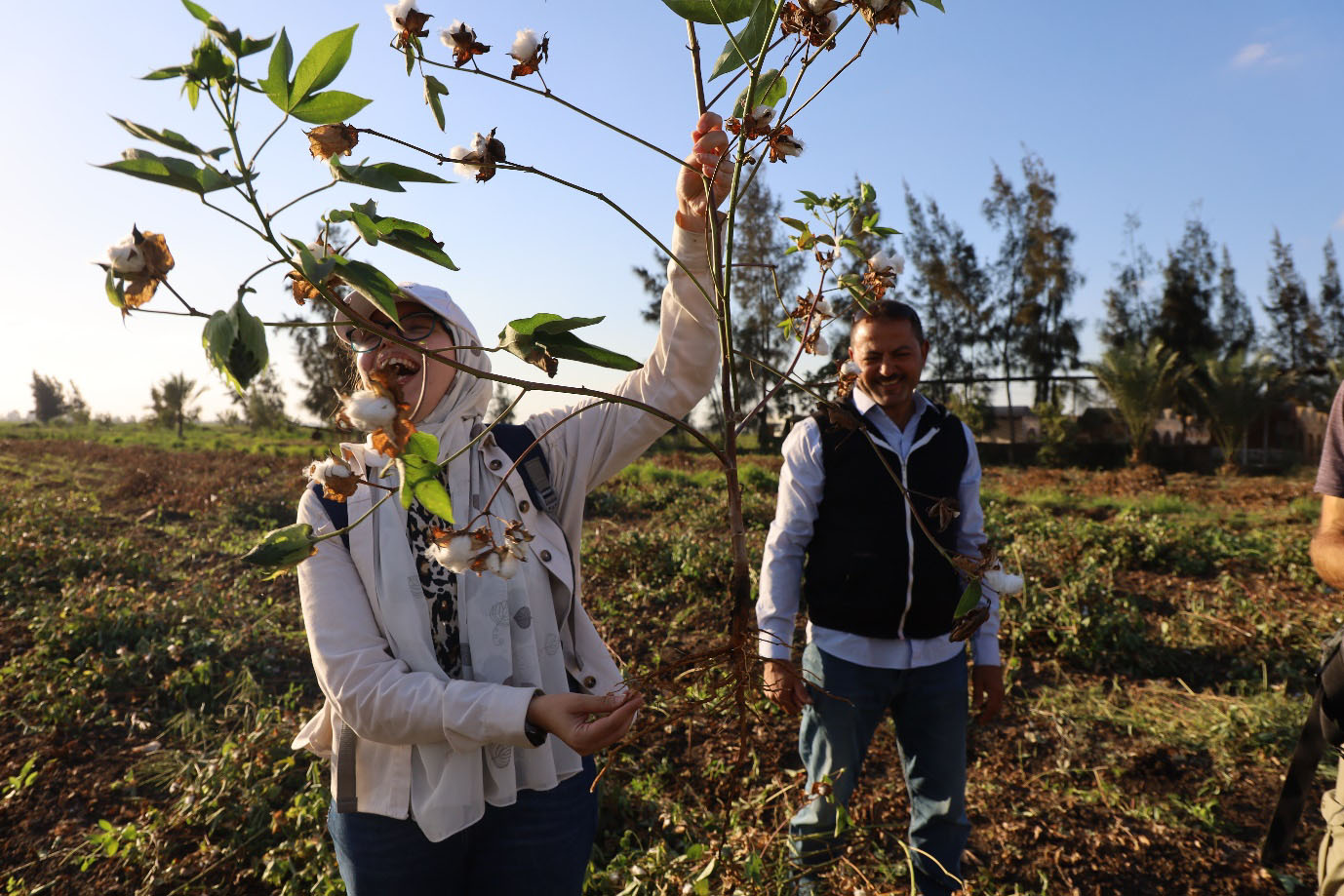
Ventile awarded for best Eco Performance fabric
Opinion


Portfolio now includes five styles made exclusively from 100% regenerated cotton.

9th May 2024
Adrian Wilson
|
Frankfurt, Germany
Swiss brand Ventile demonstrated the unbeatable waterproofing performance of its well-known fabrics at Techtextil 2024 in Frankfurt, and the company continues to go to great lengths to ensure the exclusivity of the extra long staple cotton fibres they are based on.
Only 2% of all cotton grown is extra long staple – with a staple length of 35mm. On top of that only 2% of extra long staple cotton is organic, which means that only approximately 0.04% of the world’s cotton crop is suitable for Ventile Organic fabrics, for example.
Perhaps even more exclusive is the range of five styles Ventile is now offering based on 100% regenerated cotton. To get to such quality with recycled long staple cotton fibres is virtually unprecedented.
Density
Ventile is also the densest woven cotton fabric on the market, with a hydrostatic head that can’t be matched – while retaining its breathability it is completely impenetrable to water molecules up to a water column of 600mm. It is also treated with a PFC-free DWR (durable water repellant).
The fabric famously has its origins in World War 2 in the UK, when Churchill tasked the Shirley Institute with developing a dense coverall to protect pilots. At that time pilots were often forced to make emergency landings in the sea and as a result many died from exposure in icy waters. Ventile fabric proved successful at preventing this and saved a lot of lives.
“It was still manufactured in large quantities in the UK up until de-industrialisation and its finishing first moved to Switzerland and then Stotz took over the weaving,” explains brand director Daniel Odermatt. We acquired the brand seven years ago and still sell the fabric to the British and Swedish armies.”
Founded in 1939, Ventile has significantly transformed its own business model over the years, beginning as a manufacturer of interlinings before evolving into a major player in the shirtings business. Today, it acts as a typical converter, overseeing all of the separate operations that go into the finished product, with fibre sourcing and weaving at select mills in Egypt and Turkey.
Biodynamics
To further ensure the purity of its fibres, Ventile has an ongoing joint venture with the Egyptian Biodynamic Association (EBDA) which is implementing various measures to support organic and regenerative farming.
A chemical-free soil environment has been created at two farms in the Nile Delta region of Egypt, have been a success, with independent lab results showing significant changes in the composition of the soil structures, including improvements in texture, soil stability, and aggregation. The activity has been carried out as part of the journey to implement biodynamic farming methods at the two farms.

In a bid to establish self-sustaining farms using biodynamic principles, the land has been cultivated to improve soil health, as observed through enhancements in soil organic matter, microbial activity and overall soil fertility. In addition, measures such as establishing tree borders have been implemented to act as a protective barrier against potential contamination from neighbouring farms as well as fostering biodiversity.
The primary objective of the project is to support the production of high-quality, ethical and regenerative-grown organic cotton to meet the increasing demand in the textile industry. Early indications show that the long-term productivity and quality of cotton from the farms should increase significantly with cotton yield increasing by 157kg per acre in the first year.
“Increasingly, it is becoming more and more challenging to source organic cotton that is both biodynamically farmed and of a high quality,” says Odermatt. “Projects such as this provide farmers with the skills, knowledge, and access to experts, to support a move to regenerative farming methods. Working with the EBDA supports our ongoing aim to provide environmentally conscious fabric solutions and it also supports the future production for the textile industry. We are thrilled to see the results from the initial phase of the project and look forward to our ongoing partnership with the team. Ventile is dedicated to developing premium textiles that support sustainable developments in the industry. We continue to push forward our range of fabrics and launch incremental additions in line with customer trends.”

Business intelligence for the fibre, textiles and apparel industries: technologies, innovations, markets, investments, trade policy, sourcing, strategy...
Find out more